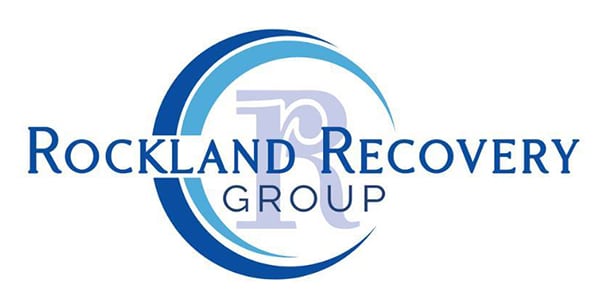Addiction treatment is a vital step for working towards a life free from drugs or alcohol, but what happens after treatment is completed? Rehab programs often operate on a thirty or sixty-day schedule, but the need for support doesn’t automatically end when treatment is over. Aftercare programs in addiction recovery offer continued support and reduce the risk of relapse for those who have gone through treatment for drug or alcohol abuse.
Jump to Section
Understanding Aftercare Programs for Addiction
When someone completes addiction treatment, we need to assess if the treatment was enough. There are several highly effective treatments used in recovery programs, but is a month or two of treatment enough to provide the best outcomes for relapse prevention?
The answer isn’t always yes.
Addiction is a chronic disease, and while it can be put into remission with addiction treatment, the risk of relapse is always present. Sometimes, those who have completed treatment feel isolated and unsure of how to manage their life of sobriety after completing treatment. Aftercare at Rockland Recovery offers solutions to all of these concerns.
Aftercare is continued addiction care. Much like managing any chronic disease with regular visits to a doctor, aftercare helps the individual feel more connected, build a strong support network, continue developing coping strategies and life skills, and provide access to crisis care if needed.
Aftercare programs are not as rigid or structured as active addiction treatment and look different for each person. An addiction treatment expert meets with the individual and develops an outline for continued care and support. This might include individual or group therapies on an outpatient basis, following a schedule that both offers the support needed and fits into the person’s lifestyle and obligations.
Do You Need an Aftercare Program?
The short answer is yes. Anyone who has gone through addiction treatment can benefit from participating in an aftercare program. These programs provide beneficial support for the early stages of independent living after addiction recovery when isolation, learning how to manage triggers, and other challenges are major fixtures in a person’s life.
The stage immediately following addiction treatment is a vulnerable time for relapse, and aftercare offers the essential support needed to overcome these challenges.
Aftercare is also important in the long term. An initial aftercare plan may last three, six, or twelve months, but the benefits extend far beyond this time frame.
By participating in an aftercare plan, individuals can better connect with peer support systems through programs like weekly group meetings. Access to continued mental health care is another important long-term benefit of aftercare.
If you’re at a point where you’ve completed drug or alcohol rehab but have either relapses or feel that you might, we urge you to reach out to Rockland Recovery at 888-299-4833. Another option is to contact the Substance Abuse and Mental Health Services Administration (SAMHSA) through their 24-hour National Helpline at 1-800-662-HELP (4357).
6 Important Benefits of Aftercare
Aftercare programs provide essential support for individuals transitioning from addiction treatment to independent living. These programs help maintain recovery, prevent relapse, and address co-occurring mental health disorders, ensuring a holistic approach to long-term sobriety. Here are six key benefits of aftercare in addiction recovery.
Maintaining Recovery
The primary purpose of aftercare programs is to help those who have been through addiction treatment maintain their recovery. Continued access to support and regular assessments are important for managing addiction following treatment.
Ease of Transition Into Independent Living
The transition from addiction treatment back into fully independent living is highly challenging for many people. It comes with uncertainty, the demands of adapting to life as someone who doesn’t use drugs or alcohol, and fears that they won’t be able to maintain their recovery.
The transitional support aftercare offers can help make this a less isolating and challenging time.
Treatment Goals Being Met
Goal setting is an important element of aftercare planning. It provides an important roadmap, as the individual has a set of clearly defined goals to work toward. Regular meetings with addiction therapists help to monitor progress, assess whether the plan is working, and determine whether changes need to be made. This can provide an important sense of moving forward and accomplishment as these after-treatment goals are met.
Relapse Prevention
Freedom from addiction and relapse prevention are the ultimate goals of addiction treatment. The risk of relapse is a very real threat to a person’s hard work in recovery, but continued support, education in managing triggers, and access to crisis services as needed in aftercare can significantly reduce this risk.
Treatment and Management of Co-occurring Mental Health Disorders
The management of mental health disorders plays a key role in long-term addiction recovery. Undiagnosed or untreated mental health issues are a significant contributor to addictive behaviors and the risk of relapse. Through aftercare, continued mental health care can be provided for more holistic healing from addiction and an improved quality of life.
Community Support & Sense of Purpose
The stigma and shame that often comes with addiction, even after treatment is completed, can lead to isolation, depression, and relapse into drug or alcohol use. It’s important for those who have completed treatment to have access to post-rehab support from peers and a community in which they feel safe and free from judgment.
Outpatient group therapy, such as 12-step programs, is often a key aspect of aftercare planning. These groups allow individuals to make friends and become part of a lifelong support community.
Find Continuing Care After Rehab
If you or your loved one have completed addiction treatment but need continued support, our professional and compassionate staff at Rockland Recovery can work with you to develop an aftercare plan that meets your needs, including participation in our Alumni Programs. Addiction is a lifelong journey, and you should never feel that you have to travel it alone. Contact us today at 888-299-4833.




